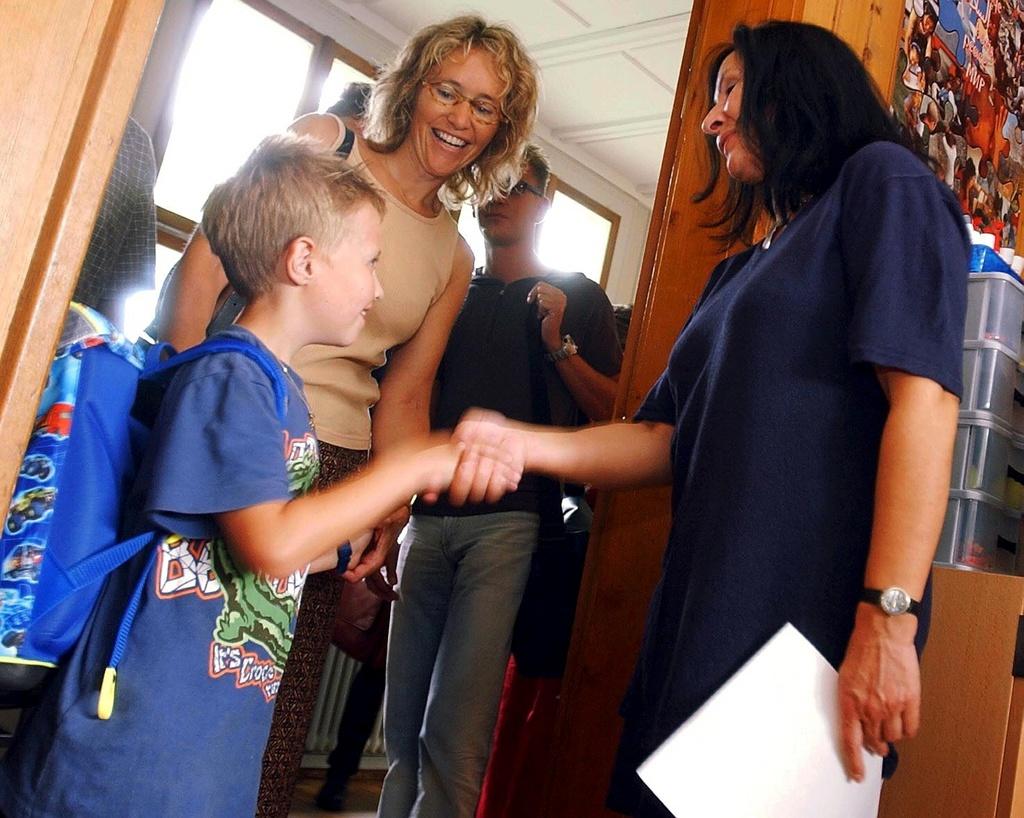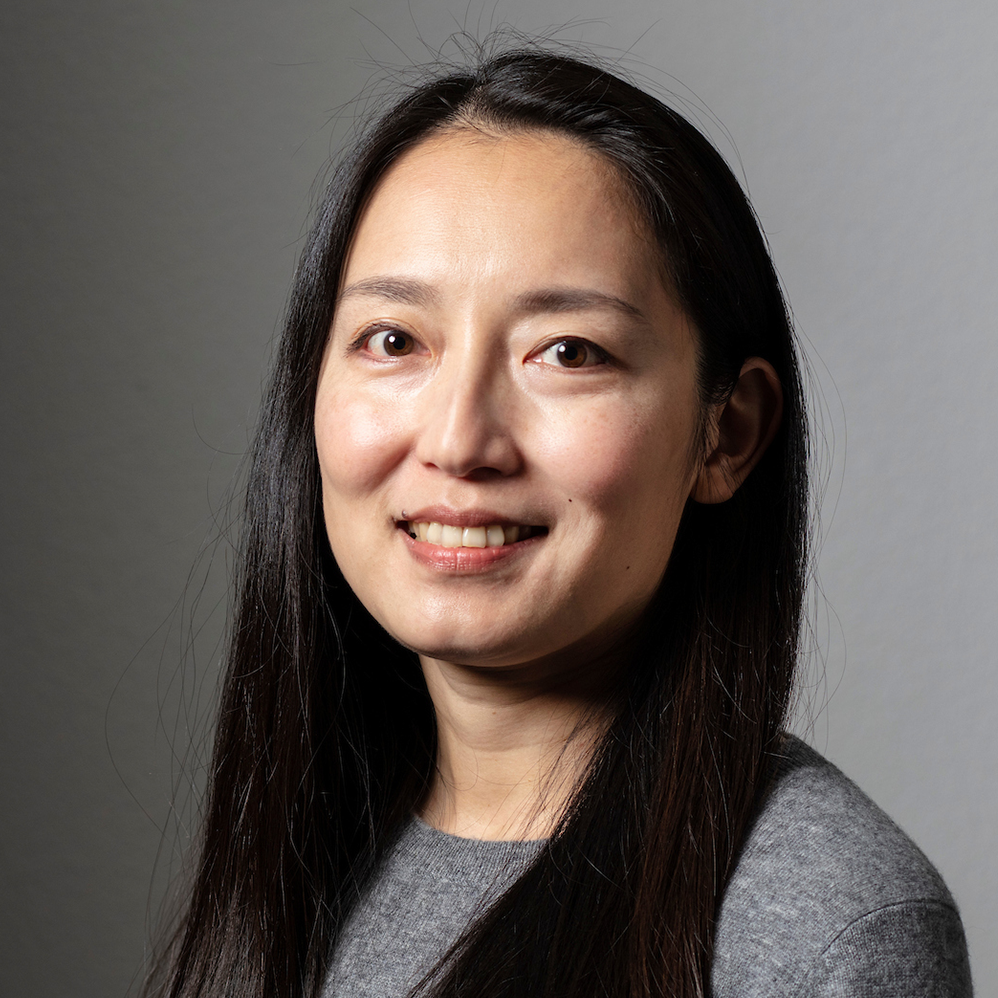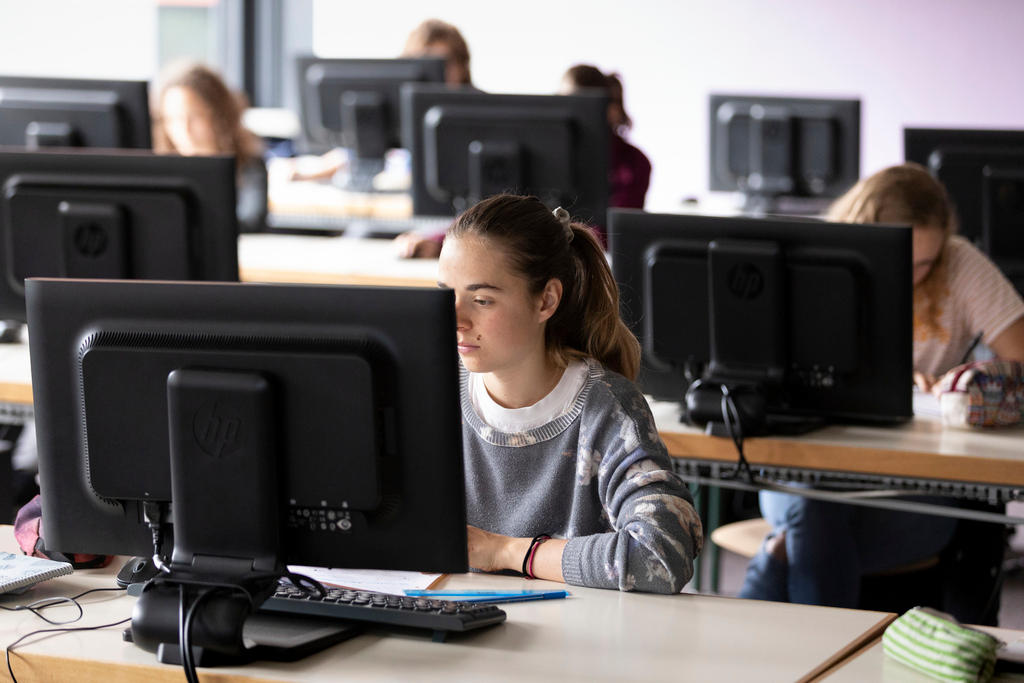Back to school culture shock

This August, nearly 500,000 primary school students across Switzerland will start or return to school for a new year. One in three students is not a Swiss national and even more are born into dual nationality families. For many parents, their children starting school will be their first contact with the Swiss education system.
“In India, only the most brilliant students receive praise. The children who don’t speak much or who are timid, are often neglected by the teachers. But the Swiss teachers do everything they can to satisfy the individual needs of each student,” comments Ruby*, an Indian mother from canton Vaud who says she is happy her children are attending school in Switzerland.
Lynn, a Chinese mother, has also been pleasantly surprised by the fact that Swiss schools think of everything: “Here, they even provide scissors and exercise books to suit left-handers!”
But Mounira, a Lebanese mother from canton Fribourg, has a different impression. Five months before her daughter started primary school, the family received a letter that listed the abilities which the children must already master: how to use scissors, tie their shoelaces, flushing the toilet after using it, etc.
“There are a good 20 items listed on this paper. It makes me think the school wants a herd of sheep that all do the same thing…,” says Mounira smiling, but with a slightly annoyed expression.

Fribourg education department’s liaison officer for migrant children, Adrienne Berger, is somewhat surprised by Mounira’s reaction to the letter.
“This letter is aimed at starting a dialogue with parents whose children are about to become students. It’s not about demanding things to achieve before starting school, but more about ways in which parents can prepare their children to ease their passage from the family into school,” she says.
To welcome, inform and accompany migrant parents in the schooling of their children, canton Fribourg created four short films in 11 languagesExternal link illustrating the Fribourg school system. Without giving direction, the films show the daily life of Swiss students and are very much appreciated by teachers and families alike.
Language first
“I remember when my son first started school, the principal gave a 45-minute speech that included 15 minutes on the welcome and 30 minutes outlining the measures the school had in place to help the weakest students,” says a Chinese mother who was struck by the extent to which the school aids students with learning difficulties.
Fadel, a Moroccan father who lives in canton Bern, shares the impression: “One thing that is very important in the compulsory Swiss school curriculum is the attention given to children who learn at a slower pace.”
“Whatever the cultural origin of a migrant student, the most important task for us is to help them master the language of instruction,” says Berger. A child who does not know the local language needs an average two years to communicate easily. To reach native language level, it takes five to seven years.
Starting from pre-school (for children aged four to five), schools regularly offer support classes to children who have not yet mastered the language – something parents appreciate enormously.
Many cantons have gradually joined. In the majority of them, the children enter compulsory school at the age of four. The duration of compulsory education is thus extended from nine to eleven years.
The HarmoS programme, which aims to harmonise compulsory schooling between the Swiss cantons, came into force in 2009.
Many cantons have joined the programme. In the majority of them, the children enter compulsory school at the age of four. The duration of compulsory education is thus extended from nine to eleven years.
These eleven years are divided into three cycles: two years kindergarten, two years primary school I, four years primary school II and three years secondary school I. Schools must do everything they can to enable children to complete each of these cycles according to the abilities and maturity of each child.
Starting from the first primary school year (3H), students begin intensive learning to read and write. As this is a pivotal year, teachers sometimes suggest that a student repeats (now referred to as “extending”) the first year.
“However, extensions during the cycle are to be avoided when possible,” comments Berger. “And at the end of the day, the decision rests with the parents.”
“It is imperative that parents get it!” exclaims Mounira. “Whether it’s the school principal or the teaching advisor, nobody should make that decision against their will.” The Lebanese mother regrets that many migrant parents, because they feel out of place, put their trust almost blindly in the institutions.
And the over-achievers?
While some parents worry about their child’s learning delay, others on the contrary, are faced with a completely different situation. Jia, a Chinese mother who lives in canton St Gallen, has an eight-year-old son who has suffered from headaches since he started primary school.
“In fact, he learns too quickly and is bored at school,” says Jia. “I think that Swiss schools don’t do much for the over-achievers. In China, there are special classes for them at each level of education.”
Jia is not the only one who has had to decide whether to let her child skip a class level. And although she said yes, the situation did not improve.
“Skipping a class is not always the best solution. The cognitive factor is not the only one to take into consideration. You also have to think of the social skills and maturity [of the child],” explains Berger. “A very intelligent child could very well ‘only’ exhibit the same maturity of their age group. And if they find themselves amongst children who are older, that could complicate their integration.”

“For a child who is well integrated into their class, it is sometimes preferable to not jump a year ahead but to offer a specialised program.”
Currently in canton Fribourg, different schools collectively organise special courses for students with higher intellectual potential.
“But a public school does not allow the possibility of establishing a particular study plan for these students,” admits Berger.
Public schools must first guarantee a level of teaching quality for the majority of students, a fact which Jia understands.
“Swiss primary schools are very good, especially if you have an ‘average’ child,” she says. In the end, she and her husband decided to send their son to a private school.
In the name of God!
Another region, another family, another problem, and one to which Hannah, an English mother, has still not found the solution. For those like her who do not have religious beliefs, what does she do about her daughter attending religion classes at her primary school in Bern?
While the students can be excused from the classes, the only alternative that is offered is to do supplementary exercises in the corridor, often on their own. Hannah’s daughter, therefore, decided to stay in the class which is taught by a person with strong religious beliefs. But the girl has sometimes returned home in tears.
“She told me that according to the teacher, those who don’t believe in God will go to Hell. She was very scared for me,” says Hannah. “Another time, my daughter was shocked by the story of the Passion of Christ which the teacher had told the class. It is a very violent scenario for a child who is six or seven. My daughter was hiding her tears as she wiped them away in class!”
Despite this, Hannah has not complained to the school’s administration. “Another mother has already done so to no avail. So what good would it do?”, she says.
“In case of problems, parents must be able to express themselves,” comments Berger. “If a discussion with the teacher leads to nothing, they should speak with the principal or the education inspector. Also, schools normally have a parent’s association.
“Even if they are not always in agreement, teachers and parents have the same objective, that is, the wellbeing of the student. It is therefore important that the two sides each make an effort to meet, to discuss and to advance together.”
One Russian mother had a reflection that she wanted to share with other migrant parents: “Don’t forget that at the end of the day, our children are going to live in Switzerland. It is a Swiss education that is going to prepare them for a future here!”
What parents say
“The ski camp was super. In addition to sport, children can acquire a wide range of knowledge.” (a Russian parent)
“I can’t understand why children are not allowed to run in school.” ( a Lebanese parent)
“Here one teacher gives lessons in a variety of subjects. In our country every teacher has a specialist subject.” (a Chinese parent)
“Swiss schools do not separate children according to their performance. This allows pupils to compete in a more healthy way.” (an Indian parent)
“There are few subjects and homework. Nevertheless, I feel a lot of pressure, and my child learns very diligently at home. Perhaps it is different in Swiss families.” (a Japanese parent)
“Our teachers are more arbitrary, while Swiss teachers are more democratic.” (a Moroccan parent)
“In Switzerland, children are kings, adults run around after them. The authority of teachers has noticeably decreased. Perhaps this is why many Swiss teachers are overworked.” (a Rwandan parent)
“Here children don’t have to go to school every afternoon. That’s very good.” (a British parent)
“The youngest pupils only have lessons on two afternoons of the week. Isn’t that too little?” (a Chinese parent)
*All parents names have been changed. swissinfo.ch knows their identities.
(Translated from French by Sophie Douez)

In compliance with the JTI standards
More: SWI swissinfo.ch certified by the Journalism Trust Initiative












You can find an overview of ongoing debates with our journalists here . Please join us!
If you want to start a conversation about a topic raised in this article or want to report factual errors, email us at english@swissinfo.ch.